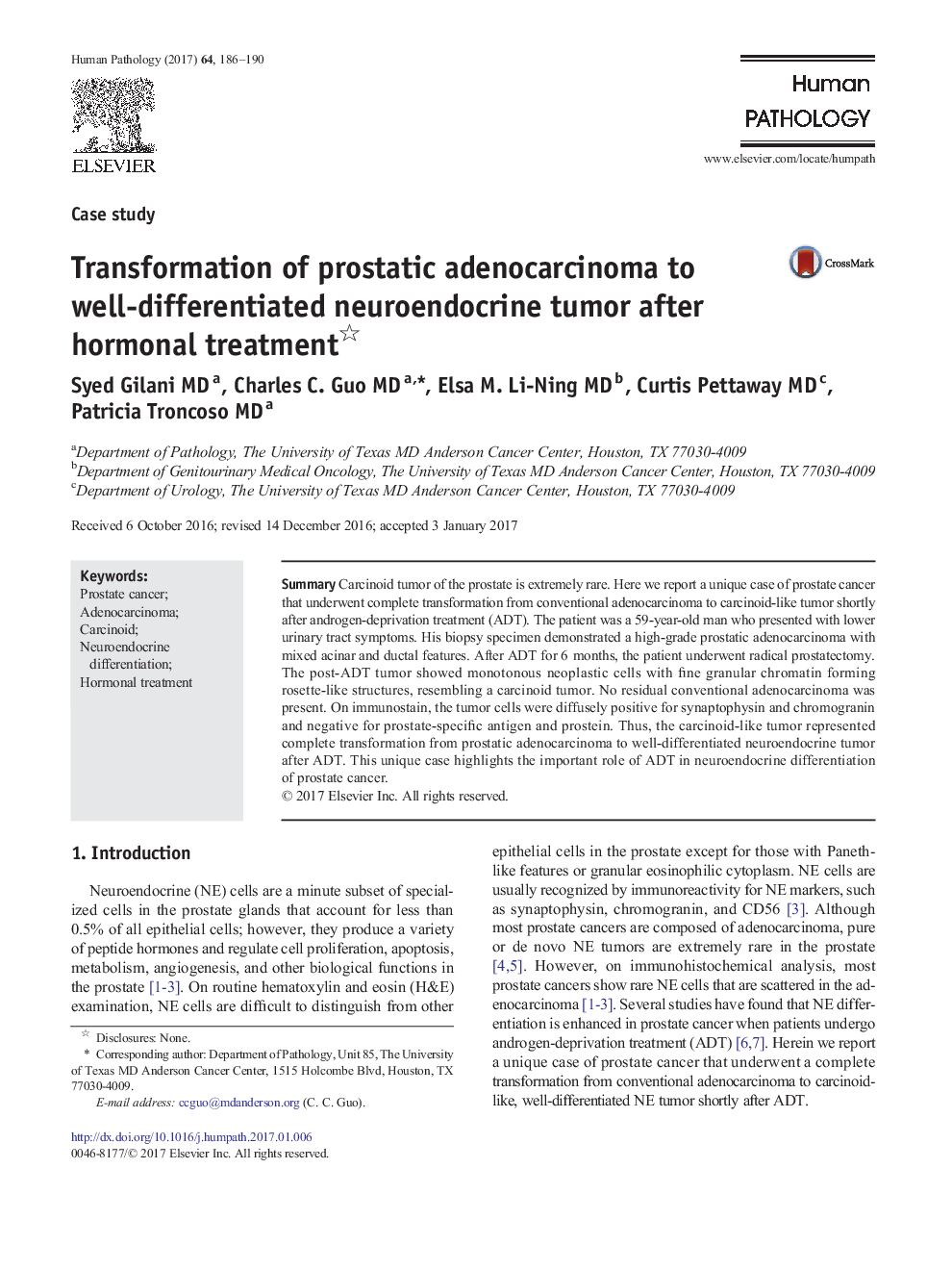| Article ID | Journal | Published Year | Pages | File Type |
|---|---|---|---|---|
| 5716216 | Human Pathology | 2017 | 5 Pages |
â¢Report a unique case of prostate cancer transforming to a carcinoid-like carcinoma.â¢Highlight neuroendocrine transdifferentiation in posttreatment prostate cancer.â¢Help pathologists to evaluate prostate cancer with neuroendocrine differentiation.â¢Discuss clinical significance of neuroendocrine differentiation in prostate cancer.
SummaryCarcinoid tumor of the prostate is extremely rare. Here we report a unique case of prostate cancer that underwent complete transformation from conventional adenocarcinoma to carcinoid-like tumor shortly after androgen-deprivation treatment (ADT). The patient was a 59-year-old man who presented with lower urinary tract symptoms. His biopsy specimen demonstrated a high-grade prostatic adenocarcinoma with mixed acinar and ductal features. After ADT for 6Â months, the patient underwent radical prostatectomy. The post-ADT tumor showed monotonous neoplastic cells with fine granular chromatin forming rosette-like structures, resembling a carcinoid tumor. No residual conventional adenocarcinoma was present. On immunostain, the tumor cells were diffusely positive for synaptophysin and chromogranin and negative for prostate-specific antigen and prostein. Thus, the carcinoid-like tumor represented complete transformation from prostatic adenocarcinoma to well-differentiated neuroendocrine tumor after ADT. This unique case highlights the important role of ADT in neuroendocrine differentiation of prostate cancer.
